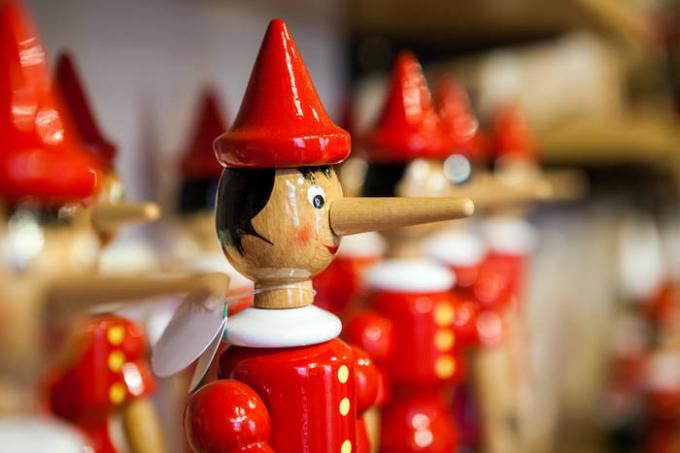We are used to teaching children to tell the truth. But a lie is also useful, isn't it?
There are two important points here. Firstly, all people (not only children) lie, and whoever says that he is not lying is at least lying about this. Therefore, childish lies should be treated with a certain calmness. It is important to find out the reason, and not fight the lie itself.
Second, people have been lying for millennia. And that's not always a bad thing. Initially, a lie is an attempt to avoid unnecessary conflicts and showdowns. And to this day all adults use this "lie for good". And children come to this gradually.

The lie will not go anywhere, neither from our life, nor from the life of a child, it is worth recognizing it as a fact and stop fighting the windmill.
It is also important to remember that children perceive lies differently than adults. For them, this is not deliberate harm to someone, but an opportunity to do a little magic: to say about something that really does not exist.
Young children begin to lie by saying, how they would like it to be. And it’s hard to denigrate such an act with the heavy name “lie”. You ask the child who broke the plate. Answer: "Not me." This is not at all an attempt to deceive you. It's just that the child sincerely wants him not to be guilty of such an act.It is important to convey to young children that from words, the desired does not become reality. This can be difficult if the child is familiar with fairy tales, where wishes are fulfilled by sound. And, of course, all parents reassure the child that they will kiss the broken knee - and it will stop hurting.
So the baby believes that words alone can make wishes come true. And you will have to learn the opposite gradually.
It is impossible to demand from a child that in one case he believed in the "magic of words", and in the other - no, and therefore did not lie.

When children lie ingenuously, about the same broken plate, it is important to make it clear that you know who is to blame, but do not focus on the lie itself.
School-age children lie, because parents during this period especially feel like bosses: they do not give indulgences, do not listen to excuses. You can't tell them why you actually skipped the lesson or got a bad grade - you have to get out.And in such a situation, it is more important for parents to pay attention to their relationship with the child: are they really open and trusting. The child should know that in the family he can share anything - then we can talk about the absence of lies in communication. But! Trust and the requirement to tell about everything are also different things, you should not confuse them.
It is always important to remember that lying is a common human technology. Everyone does this, often with good intentions. And in general, not letting children lie is also harmful. Otherwise, they, at least, will not learn to distinguish the truth from the lie.
You will also be interested to read:
- How to raise a child who won't lie to you
- How to wean a child from swearing
- 10 secrets of ideal parents - how to better understand children

